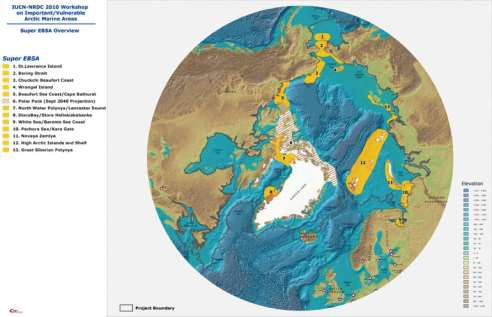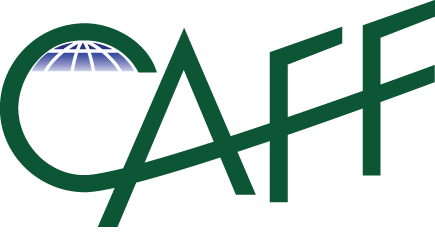Ecologic Institute and the Center for Marine Biodiversity and Conservation (CMBC) at the Scripps Institution of Oceanography, University of California, San Diego
Type of resources
Available actions
Keywords
Contact for the resource
Provided by
Years
Representation types
Update frequencies
status
-

The International Union for the Conservation of Nature (IUCN) and the Natural Resources Defense Council (NRDC) have undertaken a project to explore ways of advancing implementation of ecosystem- based management in the Arctic marine environment through invited expert workshops. The first workshop, held in Washington, D.C. on 16-18 June, 2010, explored possible means to advance policy decisions on ecosystem-based marine management in the Arctic region. Twentynine legal and policy experts from around the region participated in the June workshop. The report and recommendations of the June policy workshop can be found here: <a href="http://cmsdata.iucn.org/downloads/arctic_workshop_report_final.pdf" target="_blank">Workshop report</a> The second workshop, the subject of this report, was held at the Scripps Institution of Oceanography in La Jolla, California on 2-4 November, 2010. The La Jolla workshop utilized criteria developed under auspices of the Convention on Biological Diversity to identify ecologically significant and vulnerable marine areas that should be considered for enhanced protection in any new ecosystem-based management arrangements. A list of participants, the meeting agenda and other relevant documents are attached as appendices to this repor, see: <a href="https://www.nrdc.org/sites/default/files/oce_11042501a.pdf" target="_blank">Workshop report</a>
-

Human activity is expanding in the Arctic marine environment, in part due to warming ocean temperatures and the dramatic loss of summer sea ice. New and expanding human uses include fishing, shipping and offshore oil and gas development. All have the potential to place major additional stress on ocean ecosystems which are already undergoing profound change related to warming, sea ice loss, and alterations in ocean chemistry. Because activities conducted in one nation's waters can affect other parts of the region, effective management of some human uses in the Arctic marine environment will require international cooperation. The United Nations Convention on the Law of the Sea, in conjunction with other international agreements and national laws and regulations, provides a general legal foundation. However, new rules may be necessary to protect the Arctic marine environment. Examples of possible areas of international cooperation include: development of new standards for Arctic marine shipping, regulation of new or expanding Arctic fisheries, rules to protect the environment in the course of natural resource development, stricter regulation of Arctic tourism, mechanisms to assess and manage the cumulative impacts of multiple activities affecting the same ecosystems, and procedures for the establishment of representative networks of protected marine areas. Ecosystem-based management has the potential to provide an organizing framework for these new or enhanced management measures in the Arctic. Such an approach, as generally accepted at the international level, includes defining portions of ocean space for management purposes based on oceanographic and ecological criteria, and the development of management arrangements that address all human uses of that space in an integrated fashion. A central element of ecosystem-based management is the identification of ecologically significant or vulnerable areas that should be considered for protection due to their role in maintaining valued ecosystem functions and resilience. This data was created with the purpose to identify these areas within the Arctic marine environment.
 CAFF - Arctic Biodiversity Data Service (ABDS)
CAFF - Arctic Biodiversity Data Service (ABDS)